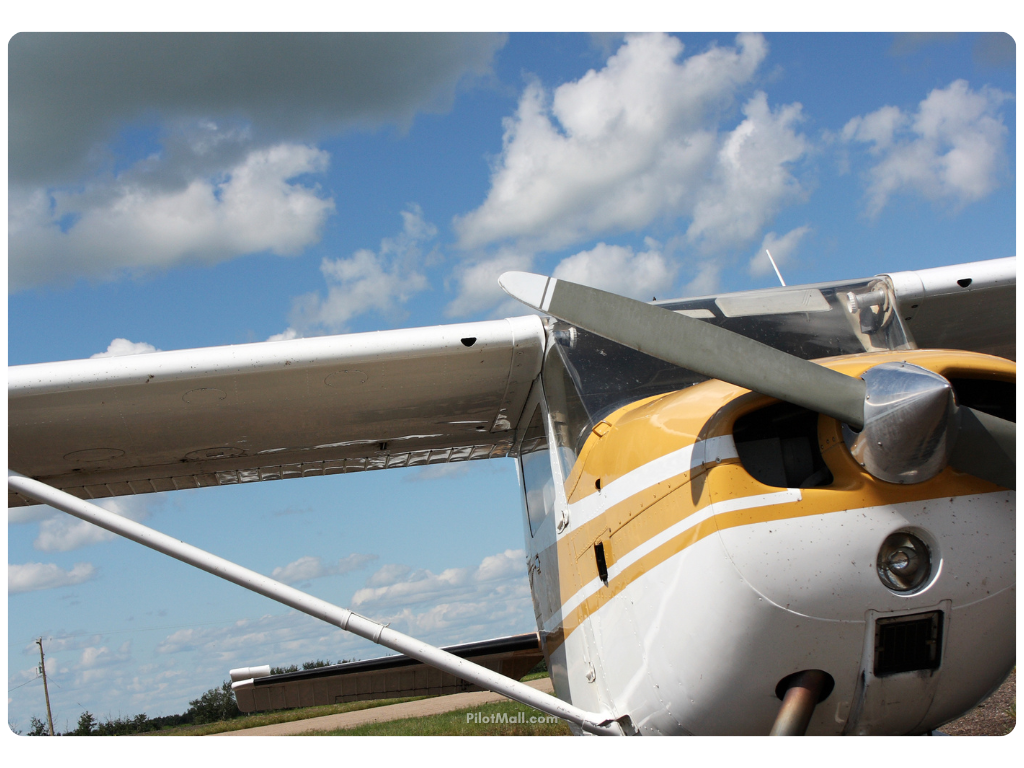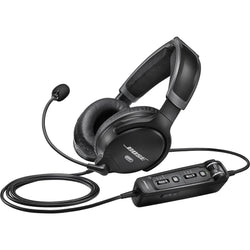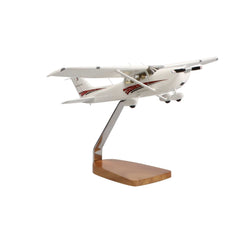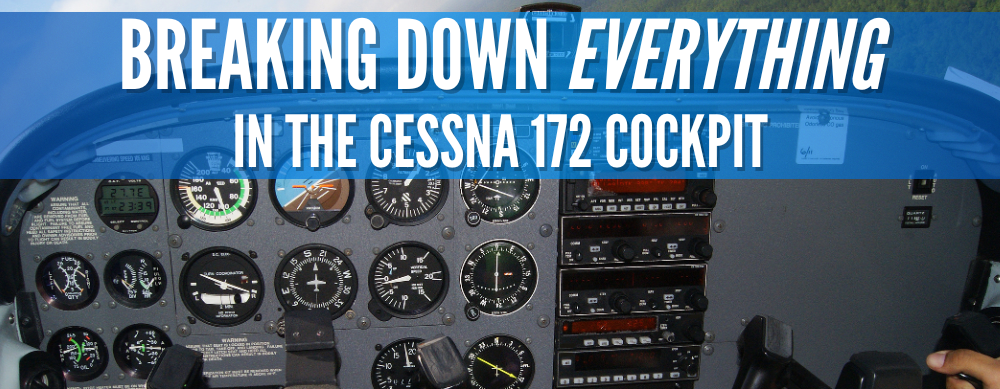
“Buy a plane” and “save money.” Never thought you’d see those two phrases put together, did you? Now, to be fair, we’re not saying that buying a plane is likely to save you money as opposed to not buying a plane.
We all know that’s not the case. The point is that when you’re in the market to buy a plane, it pays to do your homework and know how to save money on the purchase.
Ready to brush up on how to buy an airplane and save money? Here are our top 10 tips:
 1. Set a firm budget in advance
1. Set a firm budget in advance
One of the first questions you may have is, “How much does it cost to buy a plane?” Before you go out and fall in love with more plane than you can afford, sit down with all decision-making parties and set a firm, realistic budget.
You will need to select a reasonable price range, and be aware of which aircraft loans you qualify for. Research into aircraft lenders and the purchasing process involved. Research the category of aircraft you are interested in and get a feel for how much plane you can expect to get for your money. Remember to factor in taxes, fees, etc., not just the list price of the plane.
 2. Choose the plane that meets your needs 90% of the time
2. Choose the plane that meets your needs 90% of the time
That budget conversation leads into point number two: chose the plane that meets your needs 90% of the time. What does that mean? Imagine how you plan to use your new plane. What will a typical outing look like? Is it you by yourself doing some short local hops? Will you be taking your family up with you? How often?
Based on how you plan to use your plane should affect the aircraft type you research. Watch out for falling into the trap of saying that you need a 4-seater plane with a generous baggage allowance because you want to take your family on a weekend trip to a mountain cabin each July.
If you’ll be flying solo 90% of the time, then save money and opt for a 2-seater model. It will be less expensive to simply rent a 4-seater plane for your summer weekend trip than to continually fly more plane than you need the rest of the year.

3. Shop around for financing
Don’t just take the first finance offer you’re given. Compare your rates and the loan terms. Ask questions like “What percentage is required for down payments?” Credit score also matters. Ideally your credit score should be over 700. Each lender may have a minimum credit score threshold for financing.
As with other loans, the higher your score, the lower interest rate you should qualify for. The history and age of the aircraft, your expected usage and the amount of the loan will also impact your rates.
To save money on finance charges, come to the table with as large a down payment as you can comfortably afford. Also realize that in general, the older an aircraft is, the higher the interest rate will be, and the greater likelihood that a prospective lender could decline to provide financing at all.
 4. Weigh the pros and cons of new vs used
4. Weigh the pros and cons of new vs used
The “new vs used” debate is a common one among pilots. At face value it would seem to make sense that a newer plane will cost more than an older plane, and that holds true – to a point.
The purchase price of a newer plane will indeed be higher than a comparable used plane but remember that your costs don’t stop there. With a new plane, you have the added value and peace of mind that comes with a warranty and with not having to dig into the history of the aircraft to look for hidden money pits of damage.
If you are financing the purchase, a newer plane may qualify for a lower interest rate and a longer term which equals reduced monthly payments. Is that enough to offset the lower purchase price of a used aircraft? That’s for you to decide.
5. Know what factors impact resale value
As they say in real estate, “You make your money when you buy, not when you sell.” This quote is true of planes as well and it can keep you out of a lot of trouble if you heed its advice.
As you approach your purchase, begin with the end in mind. Realize that one day you may be ready to sell your plane, and on that day, you will be ever so grateful if you have equity and aren’t upside down on the financing.
How do you set yourself up for future success? Shop for a plane that can be yours for less than its market value. In other words, focus on getting a good deal and saving money now so that you will come out ahead later.
Know what factors impact aircraft resale value and focus on them. Think engine hours, airframe hours, airframe age, installed equipment, damage history, records and airworthiness directives, interiors and paint.
 6. Always do a demo or test flight and invest in a pre-purchase inspection
6. Always do a demo or test flight and invest in a pre-purchase inspection
Obviously, you will want to take your final choice of plane up for a test flight before committing. While you’re at it, we also recommend a thorough pre-purchase inspection or “pre-buy.” As AOPA says, “a small investment now could preclude major expenses later.” The pre-purchase inspection should be done by a mechanic who is familiar with the type of aircraft you are purchasing.
The goal of the inspection is to find any serious problems so you and the seller can agree to concessions or repairs prior to purchase assuming you still decide to buy the plane. Check the airworthiness certificate, and have your mechanic determine what the maintenance costs for the aircraft would be.
The AOPA’s Aircraft Condition Checklist provides a reminder of what should be included in the inspection. Want a deeper understanding of what a thorough pre-buy looks like? Savvy Aviation enlisted maintenance expert Mike Busch to tell us all about prebuys and how they differ from annual inspections.
7. Get quotes from an insurance company
One of your reoccurring ancillary costs of airplane ownership is insurance. As with cars, your rates will vary based on the age and model of your plane.
Look into insurance companies and shop around for the best package that suits your needs. Once you have narrowed down your choices, getting an insurance quote can help tip the scales in favor of one plane or another. It also helps to round out a realistic picture of your ownership costs once you have your aircraft insurance quote.
8. Research the cost and availability of replacement parts before you commit
Getting a screaming deal on the sale price is part of the equation. Another piece is maintenance and replacement parts. If you are eying up an older aircraft or one from a manufacturer without a long, stable history, do some research prior to committing.
What are the current costs and availabilities of replacements? Does the company have a plan in place for addressing parts needs for discontinued models? Are there reputable third-party sources for the parts you may need? Save money later by asking these questions now.
9. Ask your CPA if you can qualify for any business use deductions
Even if your airplane purchase will be primarily for personal use, will you ever be using it for business purposes? If so, you may qualify to write off the depreciation for the associated business flight time.
The tax laws surrounding business use deductions for aircraft are complex, and it’s worth mentioning that as of 2018, entertainment expenditures are no longer allowed.
Still, if there is a chance that you qualify, it may pay off to get an expert opinion and assistance when it comes time to file.
 10. Be patient and look for the right deal, especially if buying used
10. Be patient and look for the right deal, especially if buying used
You don’t want people with a plane problem, you want a plane with a people problem. What does that mean? Let’s explain. In a “people with a plane problem” situation, the plane is the issue. There is something wrong with it that is causing the owners to want to sell it. It is due for a major overhaul, it was in an accident, etc. You don’t want this plane.
Now a “plane with a people problem,” on the other hand is exactly what you are looking for in a used plane. Think “must sell due to relocation/divorce/health issues.” The plane is perfectly fine.
The motivation to sell is of a personal nature. This often means that time is of the essence to the seller and they are well-motivated to sell you a solid plane at a great price. This is the very definition of how to buy a plane and save money.
Fixed Costs vs. Variable Costs
Before finding an aircraft to purchase, it is important to understand what fixed and variable costs are and the differences between the two. Fixed costs are costs that stay the same over time. Whereas variable costs could potentially change, which includes items like engine oil, fuel, and maintenance.
Where to Shop for a Plane
There are several sites dedicated to providing access to thousands of different new and used aircraft. You can find everything from single-engine propeller planes to jet-engine aircraft.
(Most of these options are for planes within the United States, double check on the location of the aircraft you are interested in.)
Want to know more about plane ownership?
We have several guides to help you get on the right track for making a plane purchase!
Did you find this article helpful?
Do you think we missed anything important? Let us know in the comments below!








